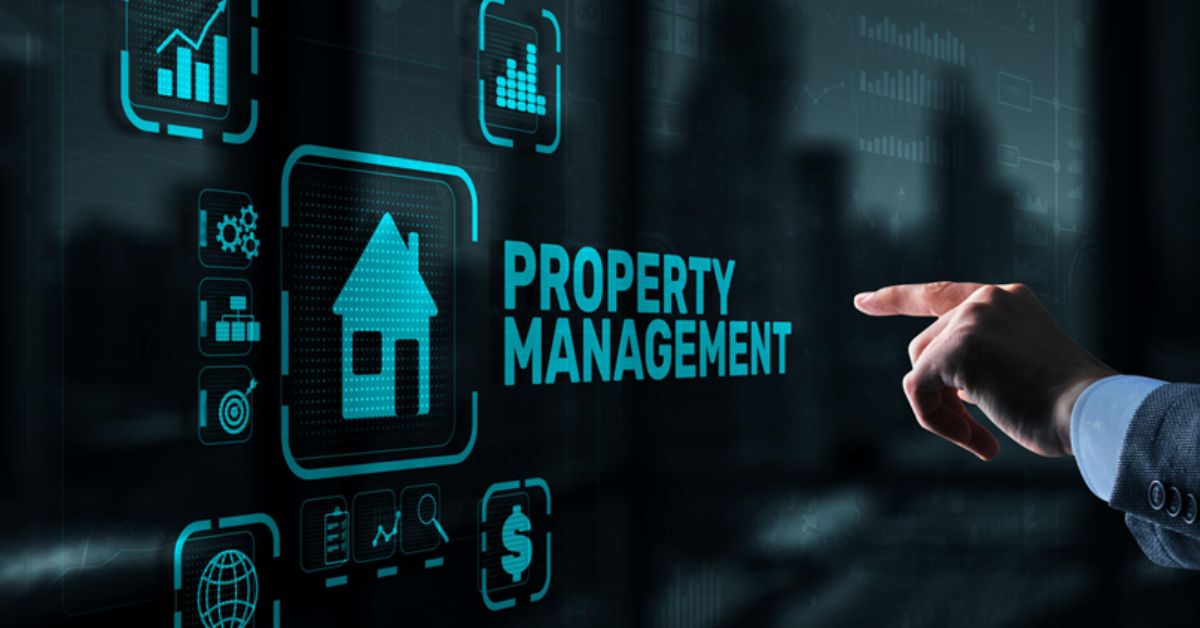REAL ESTATE
The Ultimate Guide to Maximizing ROI at Multifamily Mindset Events?

Are you ready to take your real estate investing to the next level? Multifamily mindset events could be the key to unlocking greater property management and investment success. These gatherings offer invaluable opportunities for networking, learning, and growth. But how can you ensure you’re making the most of these events and maximizing your return on investment (ROI)? This comprehensive guide will explore everything you need to know to make the most out of multifamily mindset events. From setting clear goals, researching speakers, actively participating in sessions, and implementing new strategies, you’ll discover actionable tips to elevate your multifamily real estate endeavors.
Understanding Multifamily Mindset Events
Understanding Multifamily Mindset events is like stepping into the heart of the multifamily real estate world. These gatherings are carefully put together to give you a mix of learning, motivation, and connection. Imagine yourself in lively discussions, hands-on workshops, and inspiring talks—all focused on the ups and downs of managing and investing in multifamily properties.
But it’s more than just learning; it’s about making real connections with people who share your excitement and goals. Multifamily Mindset events are like idea hubs where you can swap stories, come up with solutions, and maybe even find partners to join you on your real estate journey.
So, jump in with an open mind and a sense of adventure, and get ready to feel inspired, challenged, and ready to take on new opportunities at Multifamily Mindset events.
Why Attend Multifamily Mindset Events?
Attending Multifamily Mindset events isn’t just about showing up; it’s about seizing incredible opportunities that can transform your real estate journey. Imagine stepping into a space buzzing with fellow enthusiasts, seasoned experts, and potential partners. It’s a chance to expand your circle, soak up wisdom, and ignite your passion for property management and investment.
These events are like treasure troves of knowledge and inspiration. You’ll hear stories of triumph, learn about cutting-edge strategies, and discover innovative approaches that could reshape your approach to multi family real estate. Plus, rubbing elbows with industry leaders and fellow investors opens doors to new collaborations and deals you might never find elsewhere.
So, why attend Multifamily Mindset events? They’re not just gatherings but catalysts for growth, connection, and success in the dynamic world of multifamily real estate.
Preparing for Success
Maximizing ROI at multifamily mindset events starts with thorough preparation:
Set Clear Goals:
Define what you hope to achieve from attending the event. Whether expanding your network, learning new strategies, or finding potential investment opportunities, having clear goals will guide your actions.Research Speakers and Topics:
In advance, familiarize yourself with the speakers, panel topics, and workshop sessions. Identify sessions that align with your interests and goals.Bring Plenty of Business Cards:
Networking is a crucial aspect of these events. Be sure to bring an ample supply of business cards to exchange contact information with fellow attendees.
Strategies for Maximizing ROI
Now, let’s delve into actionable strategies for maximizing your ROI at multifamily mindset events:
Actively Participate in Networking Sessions:
Don’t be afraid to initiate conversations and introduce yourself to others. Be genuine, ask questions, and listen attentively. Remember, networking is about building relationships, not just collecting contacts. Share your insights and experiences, and be open to learning from others’ perspectives. Building authentic connections can lead to long-lasting partnerships and opportunities for collaboration.Attend Relevant Sessions:
Prioritize sessions that align with your goals and interests. Take notes, ask questions, and engage with the speakers and fellow attendees. Don’t hesitate to share your insights and experiences during discussions. This active participation enriches your learning experience and strengthens your connections within the multifamily community.Follow-Up After the Event:
The real value of networking often comes from post-event follow-ups. Contact individuals you connected with during the event via email or LinkedIn. Personalize your messages and express your interest in maintaining the connection. Consider arranging follow-up meetings or calls to further explore potential collaborations or partnerships. This proactive approach demonstrates your commitment to nurturing relationships beyond the event’s confines.Implement New Strategies:
Apply the knowledge and insights from the event to your real estate endeavors. Whether refining your investment strategy, improving property management practices, or exploring new markets, take action based on your learning. Embrace experimentation and adaptation as you integrate innovative approaches into your multifamily business model, propelling your growth and success in the dynamic real estate landscape.
Conclusion
Multifamily mindset events are invaluable opportunities for real estate professionals and investors to expand their knowledge, network with industry peers, and enhance their business strategies. Following the tips and techniques outlined in this guide can maximize your ROI and propel your real estate ventures to new heights. The Multifamily Mindset is committed to empowering real estate professionals with the knowledge, resources, and connections they need to thrive in the multifamily market. Join us at our next event and unlock the full potential of your real estate investments!
REAL ESTATE
Unlock Stress-Free Ownership with Trusted Property Management

Owning a rental property can bring good income but also many responsibilities. Managing tenants, repairs, and payments can take a lot of time.
Trusted property management helps make things easier for owners. It takes care of daily tasks and keeps everything running smoothly. With experts handling the work, owners can relax and focus on other priorities.
The right management keeps tenants happy and properties in good shape. Learn how trusted property management can help you enjoy stress-free ownership.
Reliable Tenant Screening
Finding good tenants is key to a successful rental business. Trusted property management companies use clear screening processes. This helps ensure only qualified renters move in. They verify the following:
- income
- rental history
- background information
This is done before approving any applicant. This lowers the risk of late payments and property damage. With professional help, owners can avoid stressful tenant issues.
The process also saves time since experts handle everything from advertising to lease signing. Having the right tenants means steady income and peace of mind.
Consistent Rent Collection
Late rent payments can affect an owner’s cash flow. A trusted property management team handles rent collection efficiently. They set up easy payment systems for tenants and follow up when needed. This ensures a steady monthly income without the need for personal involvement.
Property managers also manage late fees and payment tracking, keeping finances in order. Their consistent process builds trust with both tenants and owners. With this setup, owners can focus on other goals while their income remains stable.
Professional Maintenance and Repairs
Property upkeep is one of the most demanding parts of being a landlord. Trusted property management includes handling all maintenance requests promptly. Managers have access to reliable contractors who provide quality repairs at fair prices.
They inspect properties regularly to prevent costly problems. This proactive approach keeps tenants satisfied and helps maintain property value. Routine care also reduces emergency repair costs. With professional oversight, every maintenance issue is addressed quickly and correctly.
Legal and Regulatory Compliance
Rental laws can be complex and differ by location. Trusted property management ensures compliance with all regulations. They stay updated on local housing laws, safety standards, and fair housing rules. This helps prevent legal issues that could cost time and money.
Property managers also handle lease documents to ensure they meet all requirements. Having experts manage these details provides confidence and protection.
It keeps the property business running smoothly and lawfully, whether we are talking about Property Management in Charlotte NC, or other areas with strict regulations.
Strong Tenant Relationships
Good relationships between tenants and management lead to longer leases. Trusted property management teams focus on communication and quick response times. They handle tenant concerns professionally, which helps reduce turnover.
When tenants feel valued, they are more likely to care for the property and renew their lease. This creates stability for the owner and consistent rental income.
Managers also collect feedback to improve services and maintain satisfaction. Keeping tenants happy is one of the best ways to protect an investment.
Go for Trusted Property Management
Trusted property management brings structure and reliability to rental ownership. It helps property owners enjoy steady income, proper maintenance, and happy tenants. With professionals handling operations, the risks and stress are reduced.
The right team protects both the property and the investment. For owners who value peace of mind and efficiency, this service is essential. Choosing a trusted partner makes managing properties easier and more rewarding in the long run.
REAL ESTATE
VRBO Host Requirements: A Complete Guide to Listing Your Property

Becoming a VRBO host can be a lucrative opportunity, but understanding the VRBO host requirements is essential for success. Whether you’re renting out a vacation home, condo, or cabin, meeting these standards ensures a smooth experience for both you and your guests. This guide covers everything from eligibility criteria to best practices, helping you optimize your listing while complying with platform policies.
Why VRBO Host Requirements Matter
VRBO maintains specific requirements to uphold quality, safety, and trust across its platform. Failing to meet these standards can result in rejected listings or even account suspension. Additionally, adhering to these guidelines enhances your property’s visibility, increases bookings, and minimizes potential disputes.
Basic Eligibility Criteria
Before listing your property, ensure it meets VRBO’s fundamental host requirements:
Property Ownership or Legal Authorization
You must own the property or have explicit permission from the owner to rent it out. VRBO may request documentation to verify ownership or rental rights.Property Type
VRBO specializes in vacation rentals, meaning entire homes, condos, or cabins are preferred. Shared spaces or single rooms are less common but may be allowed in certain markets.Safety and Compliance
Your property must meet local safety regulations, including smoke detectors, fire extinguishers, and, in some areas, carbon monoxide detectors.Accurate Listing Information
Misrepresenting your property can lead to negative reviews or penalties. Provide clear photos, precise descriptions, and honest amenities.Responsive Communication
Hosts must respond promptly to booking inquiries and guest messages to maintain good standing.
Detailed VRBO Host Requirements
1. Account Setup and Verification
Creating a host account is straightforward, but VRBO may require identity verification. This step helps prevent fraud and ensures accountability. You’ll need:
A valid email address
Government-issued ID (in some cases)
Payment details for receiving payouts
2. Property Standards
VRBO expects hosts to maintain high cleanliness and functionality standards. Key aspects include:
Cleanliness: Professional-level cleaning between stays is recommended.
Functionality: All advertised amenities (Wi-Fi, appliances, etc.) must be operational.
Maintenance: Regular upkeep prevents guest complaints and last-minute cancellations.
3. Pricing and Fees
VRBO charges hosts a commission or subscription fee, depending on their chosen plan. Understanding these costs helps you price competitively while maximizing profits.
Pay-Per-Booking: A percentage fee per reservation (typically 5–12%).
Annual Subscription: A flat fee for unlimited bookings (often cheaper for frequent hosts).
4. Cancellation Policies
VRBO allows hosts to set their own cancellation policies, but being too strict may deter bookings. Common options include:
Flexible: Full refund if canceled at least 14 days before check-in.
Moderate: Full refund if canceled 30+ days prior.
Strict: 50% refund up to 14 days before check-in.
5. Guest Screening and House Rules
While VRBO doesn’t enforce strict guest screening, hosts can set rules to protect their property:
Minimum age requirements
No parties or events (unless permitted)
Pet policies (allowed, restricted, or prohibited)
VRBO vs. Other Vacation Rental Platforms
To help you decide if VRBO is the right fit, here’s a comparison of key features:
| Feature | VRBO | Airbnb | Booking.com |
|---|---|---|---|
| Cost | 5–12% per booking or annual fee | 3–5% host fee + guest service fee | 15–25% commission |
| Efficiency | High for whole-home rentals | Better for shared spaces | Broad audience but higher fees |
| Ease of Use | User-friendly interface | Intuitive mobile app | Slightly complex for new hosts |
| Scalability | Great for multiple properties | Best for diverse listings | Better for established hosts |
| Benefits | Lower competition in some markets | Larger guest pool | Global visibility |
Tips for Meeting VRBO Host Requirements Effortlessly
Optimize Your Listing
Use high-quality photos, detailed descriptions, and highlight unique features.Set Competitive Pricing
Research similar properties in your area to avoid over- or undercharging.Automate Communication
Use VRBO’s messaging tools or third-party apps to respond quickly.Maintain a 5-Star Rating
Positive reviews boost visibility, so prioritize guest satisfaction.Stay Updated on Policies
VRBO’s terms may change, so regularly review their host guidelines.
Common Mistakes to Avoid
Incomplete Listings: Missing photos or vague descriptions reduce bookings.
Ignoring Local Laws: Some cities require permits or tax collection.
Poor Guest Communication: Slow responses lead to missed opportunities.
Overpromising Amenities: Only list what you can reliably provide.
Final Thoughts
Understanding VRBO host requirements is the first step toward running a successful vacation rental. By following these guidelines, you’ll create a trustworthy listing that attracts more guests and maximizes earnings. Stay proactive, prioritize guest experience, and keep refining your strategy for long-term success.
FAQs
What Are the Minimum VRBO Host Requirements?
To list on VRBO, you must own or have legal rights to rent the property, ensure it meets safety standards, and provide accurate listing details.
Does VRBO Require a Background Check for Hosts?
VRBO may request identity verification, but a full background check isn’t typically mandatory.
Can I List Multiple Properties on VRBO?
Yes, VRBO allows hosts to manage multiple listings under one account.
What Happens If I Don’t Meet VRBO’s Requirements?
Non-compliance may result in listing removal or account suspension until issues are resolved.
How Do I Handle Maintenance Issues as a VRBO Host?
Address problems immediately, communicate with guests, and consider hiring a property manager if needed.
Are There Hidden Fees for VRBO Hosts?
VRBO’s fees are transparent, but local taxes or third-party services may add extra costs.
REAL ESTATE
How to Handle Finances and Property When a Marriage Breaks Down

When a marriage ends, dividing property and managing finances can become overwhelming. It’s a time marked by emotional strain and difficult decisions. One of the smartest first steps is to consult a trusted divorce attorney McKinney TX who can guide you through the legal and financial aspects of divorce with clarity and fairness. Proper planning and professional guidance can make the process more manageable and ensure both parties move forward with stability.
Understanding Community vs. Separate Property
In Texas, divorce settlements typically begin with determining what constitutes community property and what is considered separate property. Community property includes most assets acquired during the marriage, like income, homes, vehicles, or retirement accounts. Separate property, on the other hand, includes assets owned before the marriage, inheritances, or gifts received by one spouse.
Accurate classification matters. Failing to distinguish the two can lead to an unfair division. It’s best to collect all relevant financial documents early, such as bank statements, mortgage records, and tax returns, to support your claims during the process.
Evaluating Assets and Debts
It’s not just about what you own, but also what you owe. Debts incurred during the marriage, like credit card balances, auto loans, or medical bills, are typically considered community obligations. These are divided along with the assets.
Creating a comprehensive inventory of all assets and debts is key. Be honest and transparent, as hiding assets or liabilities can backfire legally. A financial advisor or a forensic accountant can help you value more complex assets, such as businesses or investment portfolios.
Protecting Financial Stability During the Process
As soon as divorce becomes likely, taking steps to protect your financial future is critical. Start by separating your finances. Close or freeze joint accounts if possible. Open individual accounts to receive your income and manage personal expenses.
It’s also wise to check your credit report. This helps you understand your financial standing and spot any debts or accounts you may not be aware of.
If children are involved, begin outlining a financial plan for their support. This may include temporary agreements on child support, education costs, and healthcare expenses. Courts will later formalize these arrangements, but it’s better to have a baseline understanding early.
Handling Real Estate and the Family Home
The family home is often the largest and most emotionally charged asset. Some couples decide to sell the home and split the proceeds. Others may choose for one party to keep the property, often requiring them to buy out the other’s share or refinance the mortgage.
Decisions should be made based on long-term financial feasibility. Consider the cost of upkeep, taxes, and whether it makes sense for your post-divorce budget. Your attorney can help evaluate what’s realistic based on your overall financial picture.
Retirement Accounts and Long-Term Assets
Retirement accounts are commonly overlooked but can significantly impact your future security. These include 401(k)s, pensions, and IRAs. Texas courts typically divide these equitably, even if only one spouse contributed during the marriage.
To divide retirement funds legally and without penalties, a Qualified Domestic Relations Order (QDRO) may be required. This legal document instructs a retirement plan administrator on how to divide the account. Without it, you could face unexpected taxes or lose access to what you’re entitled to.
Importance of Legal and Financial Guidance
Even in amicable divorces, legal and financial advice is vital. An experienced divorce attorney can help navigate the complexities and protect your interests. Additionally, working with a certified financial planner can provide insight into your long-term goals, including budgeting, investment planning, and retirement.
Avoid emotional decision-making. Instead, rely on facts and professional guidance to reach agreements that fairly support both parties. It’s about preparing not just for the end of a marriage, but for a stable future afterward.
Rebuilding After Divorce
Once the dust settles, take time to re-establish your financial identity. Create a new budget, update your estate plan, and revisit financial goals. Divorce is a major life change, but it can also be a fresh start. Use this time to reset and build a foundation for a more secure future.
Conclusion
Dividing finances and property during divorce isn’t easy, but it can be handled with less stress and more control when approached thoughtfully. With the help of a seasoned divorce attorney McKinney TX, the process becomes less about loss and more about rebuilding. Stay organized, seek professional advice, and take each step with confidence.

 Cartoon6 months ago
Cartoon6 months agoUnlocking the Potential of Nekopoi.care: A Comprehensive Guide

 Game2 years ago
Game2 years agoExploring Aopickleballthietke.com: Your Ultimate Pickleball Destination

 BUSINESS2 years ago
BUSINESS2 years agoUnraveling the Mystery of 405 Howard Street San Francisco charge on Credit Card

 BUSINESS6 months ago
BUSINESS6 months agoWhat Companies Are In The Consumer Services Field

 HEALTH2 years ago
HEALTH2 years agoWegovy: Important Information and Prescription Instructions

 HOME IMPROVEMENT2 years ago
HOME IMPROVEMENT2 years agoVtrahe vs. Other Platforms: Which One Reigns Supreme?

 ENTERTAINMENT1 year ago
ENTERTAINMENT1 year agoUnderstanding Bunkr Album: A Comprehensive Guide

 ENTERTAINMENT2 years ago
ENTERTAINMENT2 years agoThe Ultimate Guide to MP3Juices: Free Music Download
















